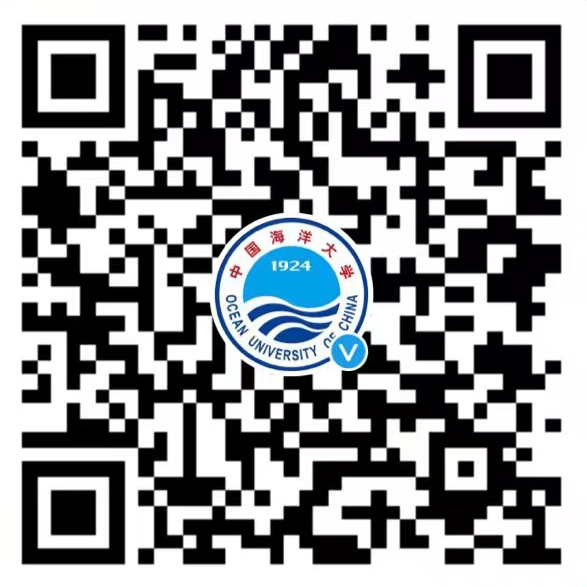Ocean University of China (OUC) has made internationalization a key focus and, to date, it has established cooperative relations with more than 290 higher learning institutions and research institutes in 43 countries and regions.
Building an International Team of Innovation
We boast four talent-introduction bases, covering the ocean-atmosphere dynamic process, theories and technology of healthy aquaculture, marine chemistry, and marine engineering and renewable energy. The university has formed more than ten innovative international research and teaching teams of physical oceanography, fisheries, marine drugs and marine chemistry around our national key disciplines of oceanography and fisheries.
Cultivating International Talent
Based on international cooperation, we proactively explore models that combine talent cultivation with disciplinary development, working with top institutions around the world to produce high-level, innovative international talent. We have set up joint undergraduate programs with the University of East Anglia, the University of Strathclyde, the University of Nantes, the University of Arizona, the University of California Riverside, the University of Waterloo, Auburn University, the University of Tasmania, the University of Sapporo, Yamanashi Eiwa College, Musashino University and Osaka Sangyo University. In addition, OUC has joint graduate programs with the University of New South Wales Canberra, the University of Angers, the University of Nantes, the University of Quebec in Rimouski, Oregon State University, Texas A&M University, Auburn University, the University of Liverpool and the University of Bremen.
We have also developed short-term student exchange programs based on our wide network of international cooperation and we now have such programs with more than twenty overseas institutions.
International Cooperation in Scientific Research
OUC participates in a number of major marine scientific research plans including IGBP, WCRP, TOGA and WOCE; it also leads the Asian Dust and Ocean Ecosystem (ADOES) with Asian SOLAS. In addition, we are pleased to play a significant role in the Northwestern Pacific Ocean Circulation and Climate Experiment (NPOCE), China’s first large-scale research plan for international cooperation in marine-related fields. In recent years, more than 30 major national projects of international scientific and technological cooperation have been conducted, all of which have achieved fruitful results.
Building a Global Platform and Network for Teaching and Research in Marine-Related Fields
We have established several high-level, substantive marine cooperation platforms such as the Center for Sino-Germen Cooperation in Marine Sciences, the Sino-Australian Joint Research Center for Coastal Zone Management and the Sino-Korean Research Center for Marine Development, based on expanded strategic partnerships with top institutions such as Texas A&M University, the University of Bremen and the University of New South Wales. OUC puts great emphasis on polar research and its cooperation with island countries, and was the first Chinese institution to join the University of the Arctic.
In July 2005 we jointly founded the International Alliance for Marine-Related Institutions (IAMRI) with the University of Bremen, the University of Southampton, James Cook University, Tokyo University of Marine Science and Technology, the University of West Brittany, and Pukyong National University. Its membership is growing alongside expanding areas of cooperation. In July 2012, we co-founded MiTiN, an international alliance for innovation in marine fields, together with marine-related institutions and organizations from twenty coastal cities across the globe.
We have initiated the building of a joint laboratory with Woods Hole Oceanographic Institution, co-founded a marine strategic alliance with the University of East Anglia, a Sino-Australian joint laboratory for marine engineering and technology with Curtin University, and have set up a joint research center on marine energy with the University of Liverpool, the University of Southampton and the National Oceanography Center in the UK. OUC is also the first institution in China to join the ASEAN Fisheries Education Network+.
Facilitating International Academic and Cultural Exchanges
Each year, hundreds of overseas scholars visit OUC for teaching and short-term academic exchanges, amongst them some of the highest award-winners and academicians. More than a thousand students and faculty from OUC travel overseas for academic cooperation and exchanges, giving them a better understanding of the cutting-edge issues in their fields of research. Since 2010, an average of ten high-profile international academic conferences were held annually at OUC, creating a platform of cooperation and exchange for scholars at OUC and overseas experts, and making OUC a Chinese center for academic exchange in the fields of oceanography and fisheries.
Working with Texas A&M University, we founded a Confucius Institute, which contributes to the promotion of Chinese language and culture as well as to Sino-US education and cultural exchange. Many good results have been achieved so far. We have also set up the visiting student program for students from overseas military academies.
OUC’s students also actively participate in international competitions with great success and our symphony orchestra has performed in the US and Germany.
Improving the Education for International Students
OUC was among the first Chinese institutions to admit overseas students. Almost all of our PhD programs are open to international students and we also have English-language master’s programs in marine science, fishery science, law of environmental and resources protection and international business, as well as an English-language program in international economy and trade.
We also offer international short-term programs and summer courses, including the Chinese business program and international EMBA. In addition, we have credit transfer agreements with many overseas institutions, enabling more than 300 students from a dozen overseas institutions to register for credit courses at OUC each year.









